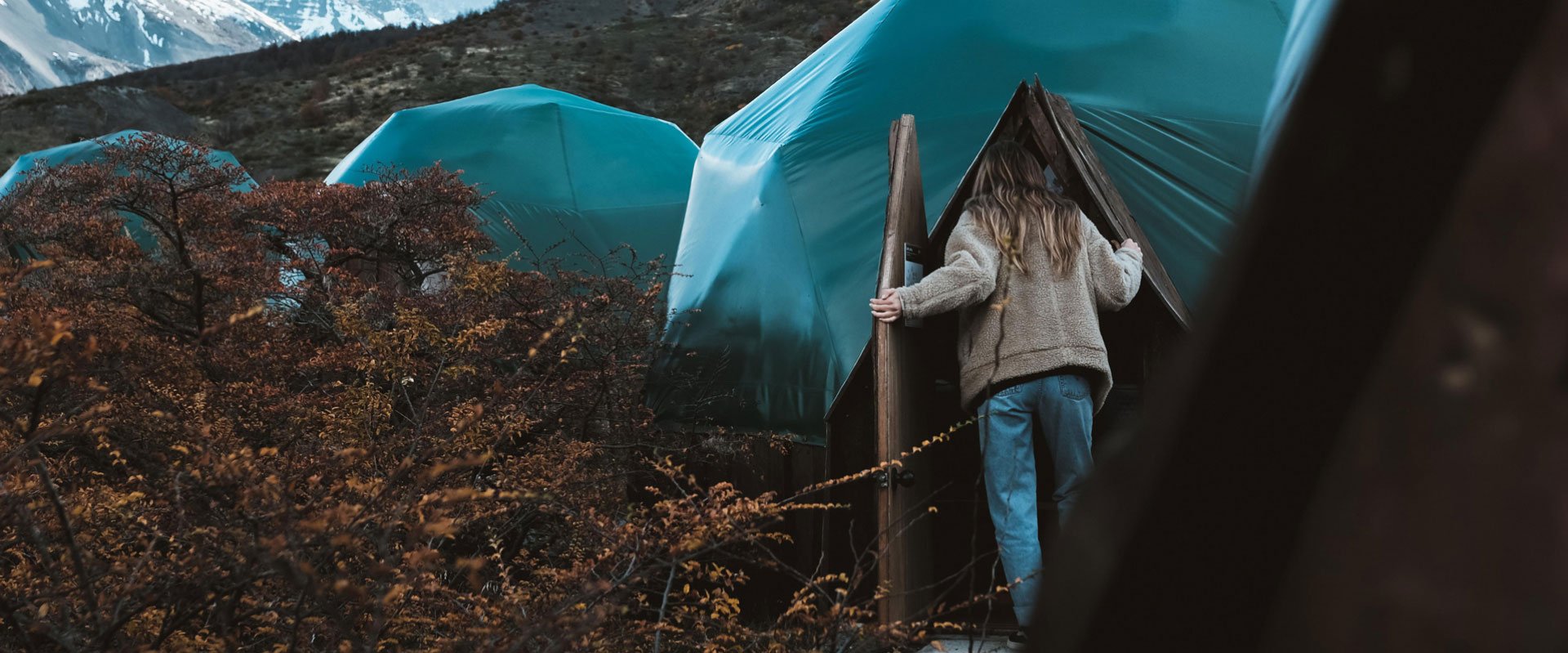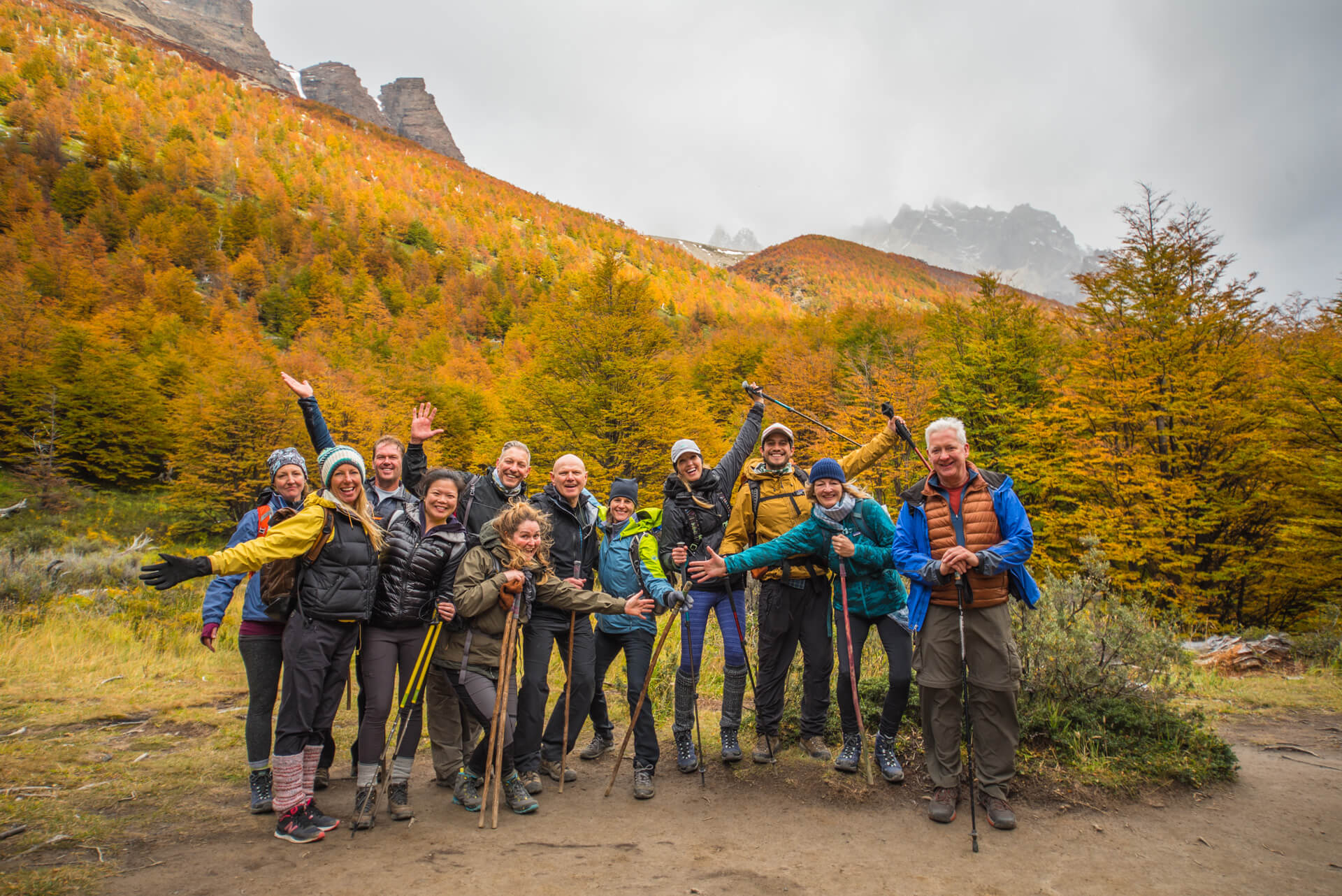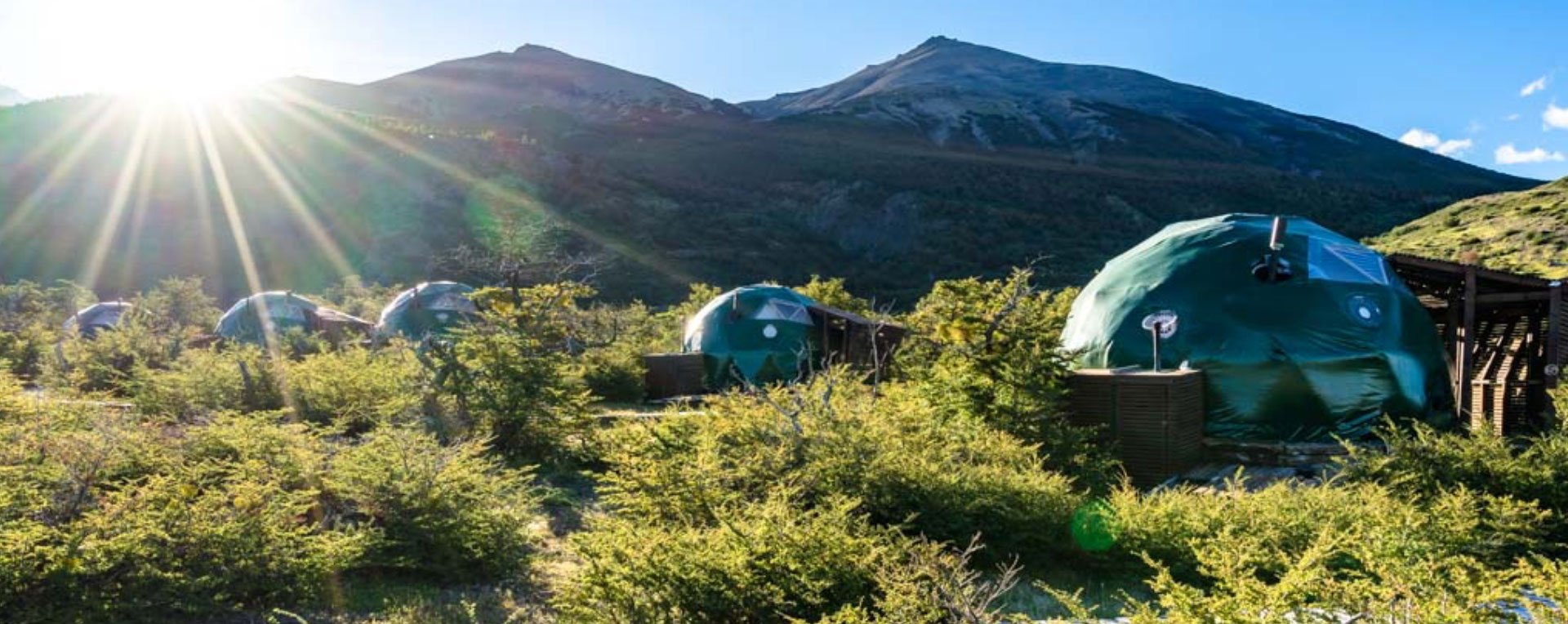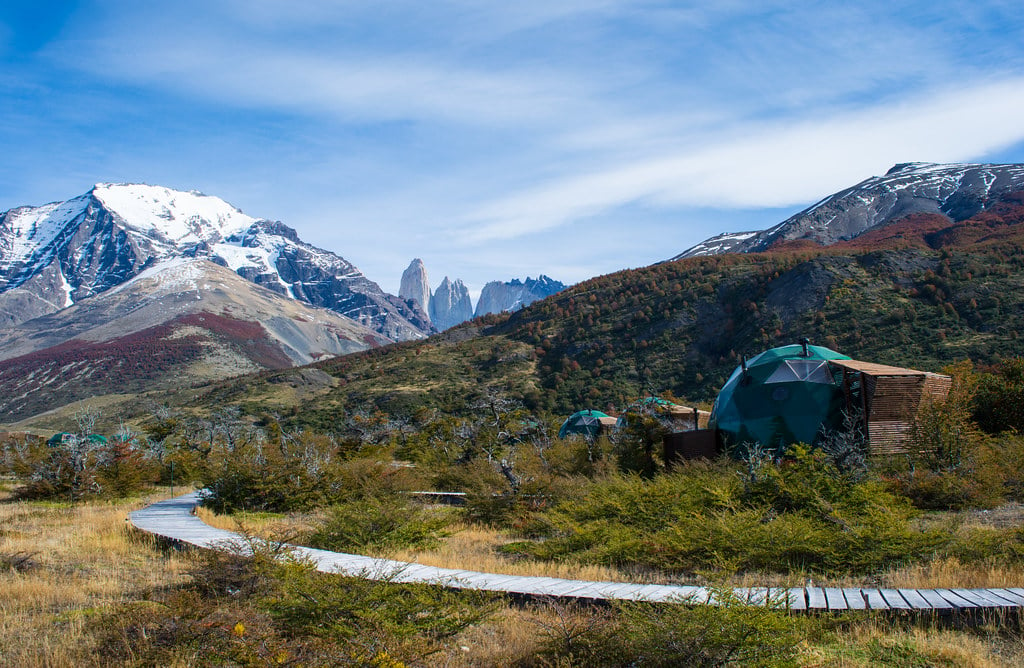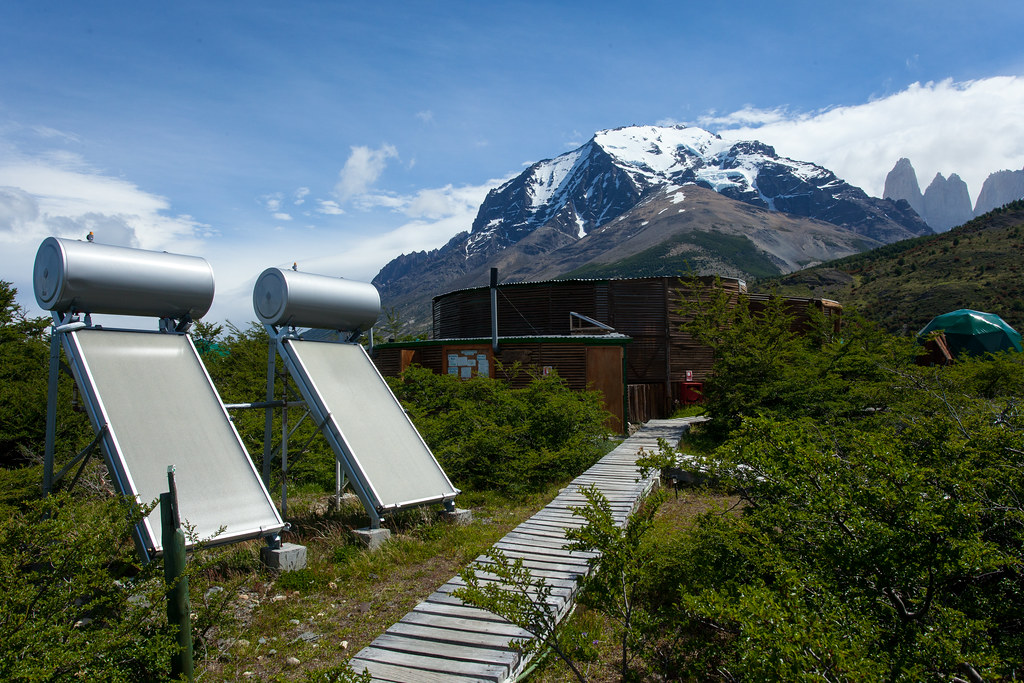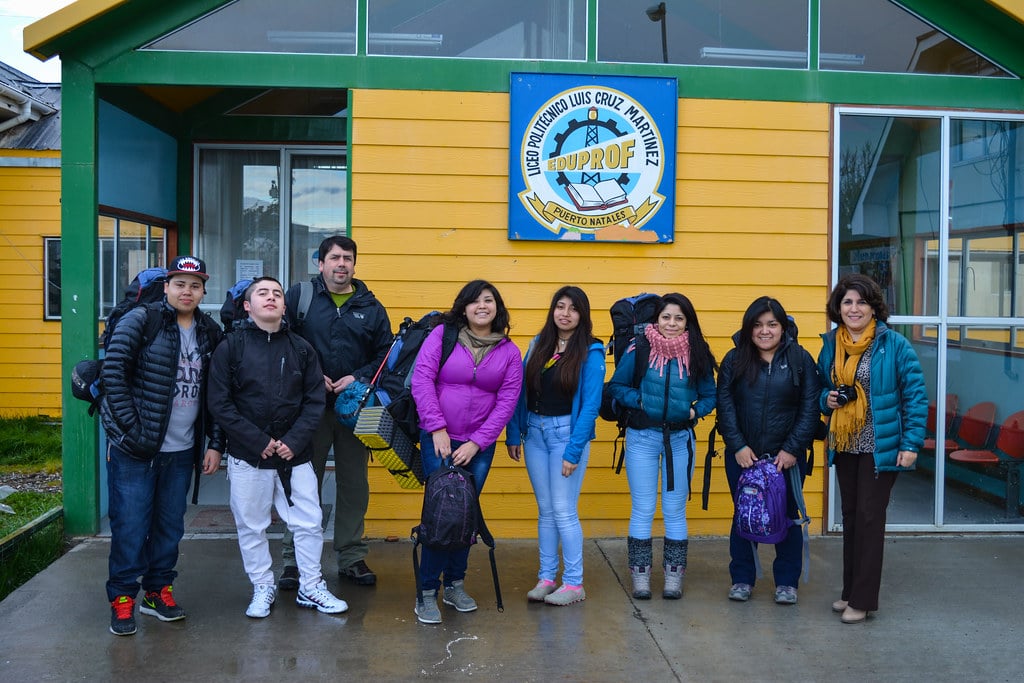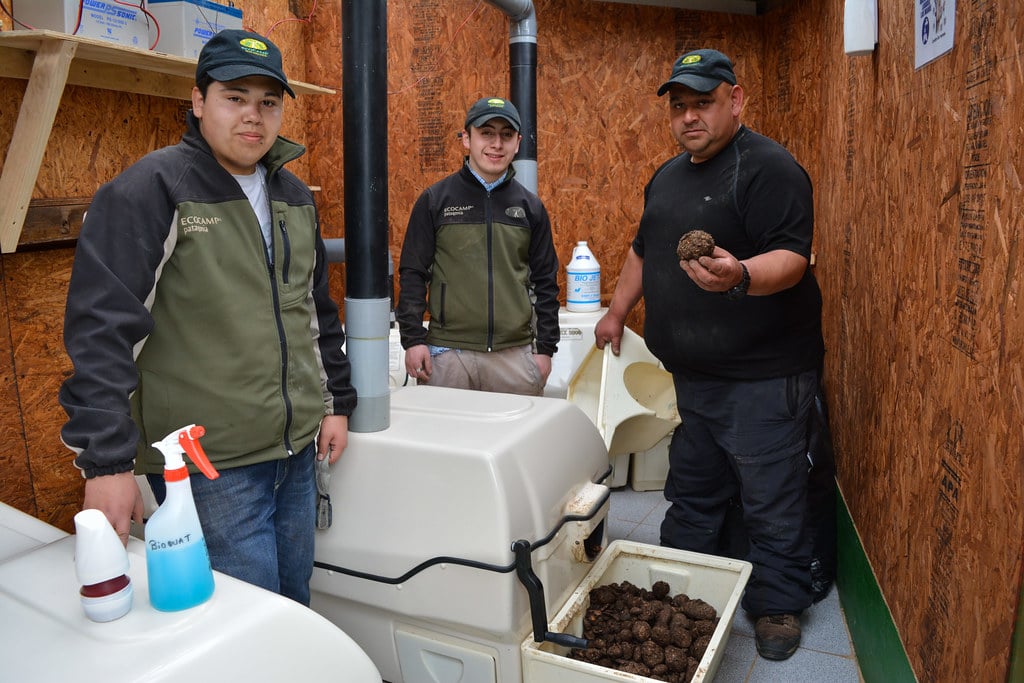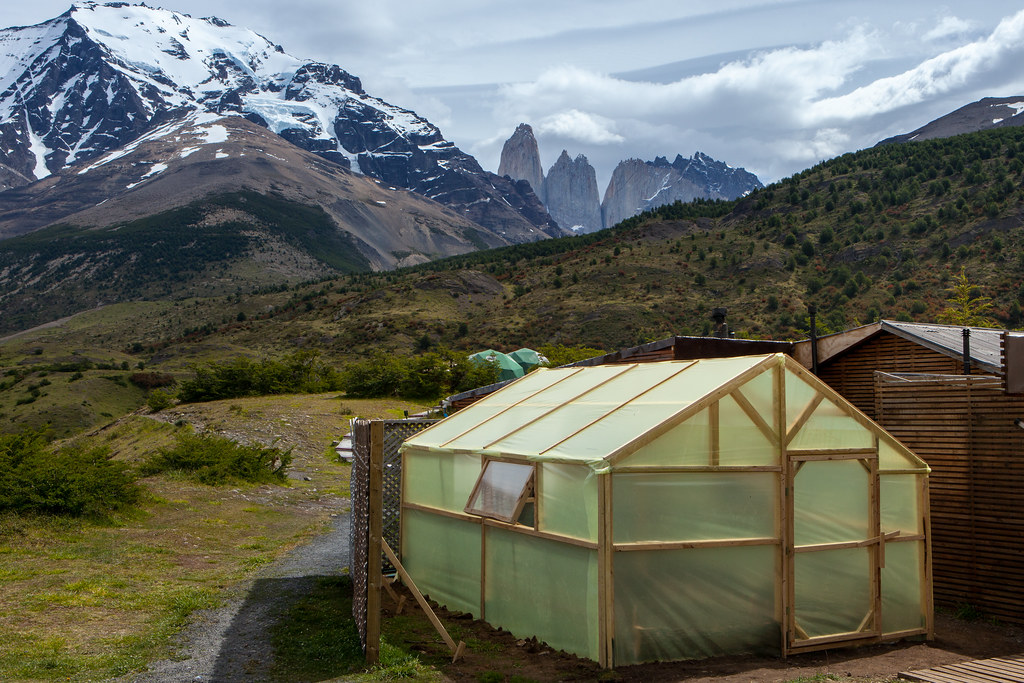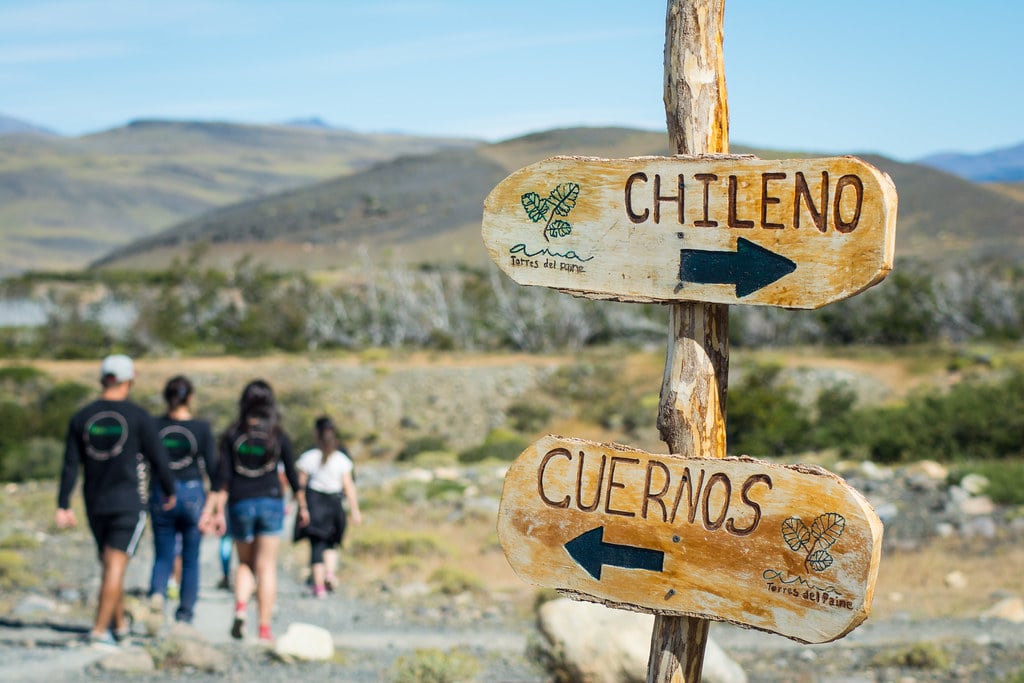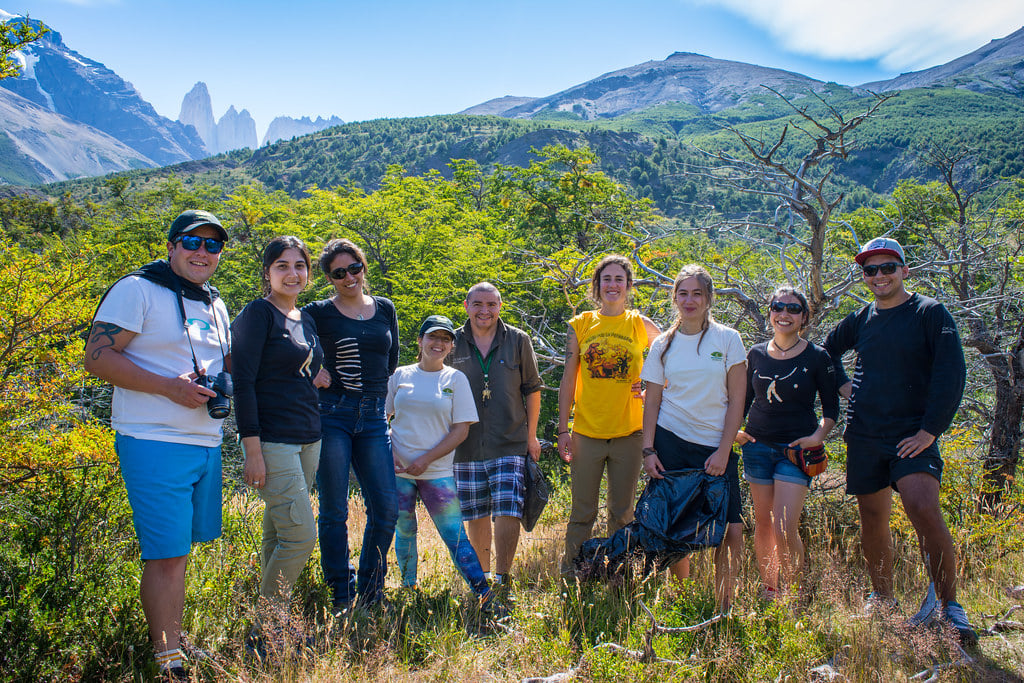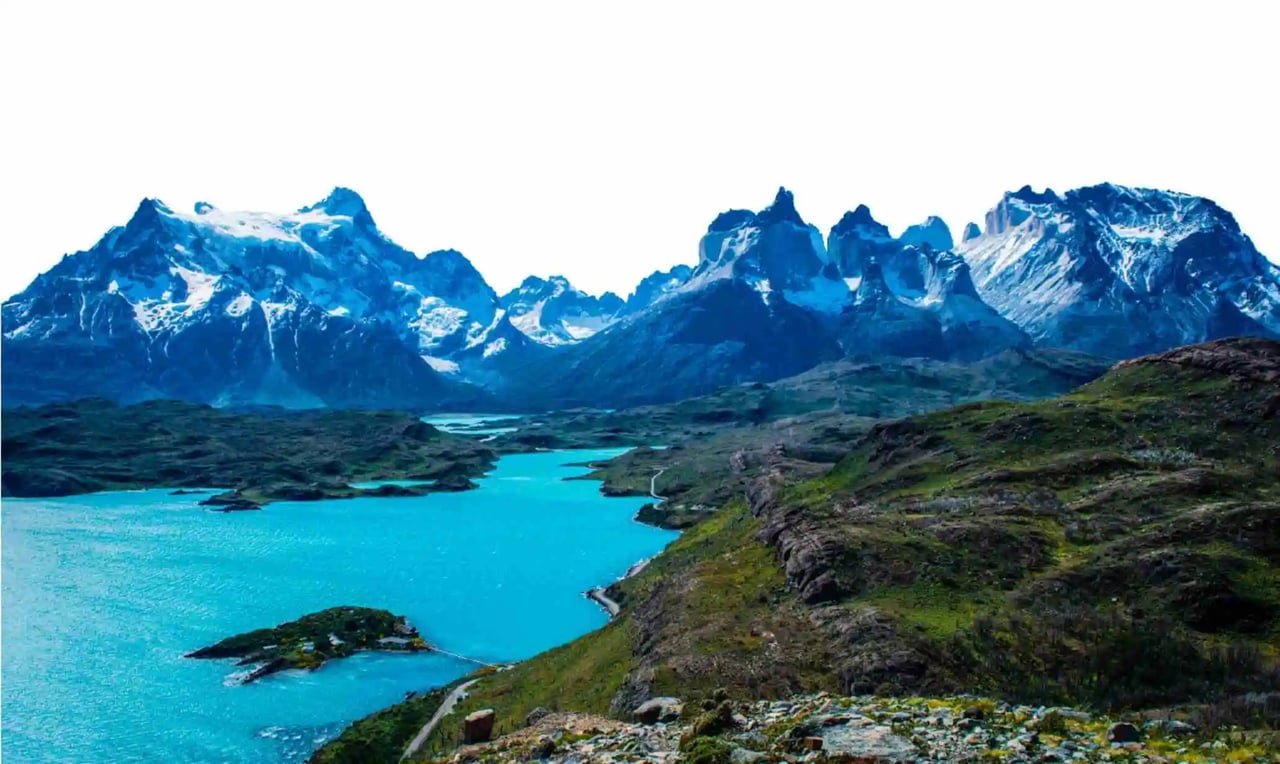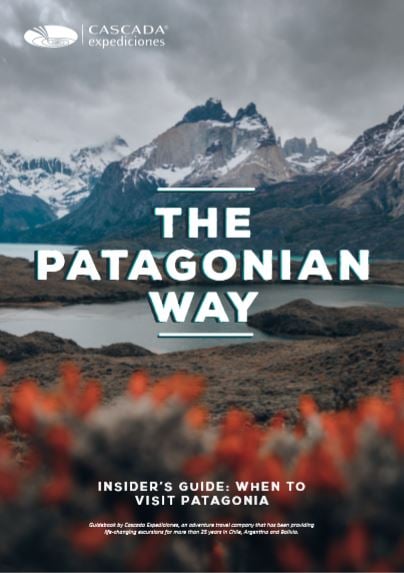No one will ever forget the dreadful fires in Torres del Paine National Park, such as the 2011 fire which burnt about 176 km2 (160 sq mi) of the area, including 36km2 of native forests. Such sad events – due to human negligence – remind us how pristine yet fragile the environment is, and how important it is to protect it. With about 175,000 visitors each year and 20,000 additional tourists per year, the eighth wonder of the world has never been so threatened and it is our duty to rather take the tourism increase as an opportunity to improve the park’s health.
Here at EcoCamp Patagonia, we agree that operating a tourism business in a pristine environment such as Torres del Paine National Park must involve sustainability. However, how can tourism be converted into something really health-giving for the local environment? The way to responsible tourism is long and miracles are scarce. But small projects can have big impacts, and small tips can give birth to great ideas! Below is our green ethos for a greener Torres del Paine.
Implementing Green Technologies is Mandatory
At least for us! Patagonia is a gift for green technologies. With about 17 hours of daylight and high humidity (from 300 mm/year in the steppe to 1000mm/year around the Southern Patagonian Ice Field), the use of hydro and solar energy is made relatively easy. In the case of EcoCamp, despite limiting energy consumption (for example while prohibiting the use of hairdryers and electric razors), a 24V battery bank powers all refrigerators, electrical appliances, lighting, etc. Water from a nearby river, when entering the micro-hydro turbine, delivers a steady power of 800 watts. The array of 1700 watt photovoltaic panels collects the extra energy needed at EcoCamp. Not to mention the use of natural light is optimized to save energy and let the sun shine through the wide windows. In short, you can enjoy good music in the light of the community domes thanks to Mother Nature’s generosity!
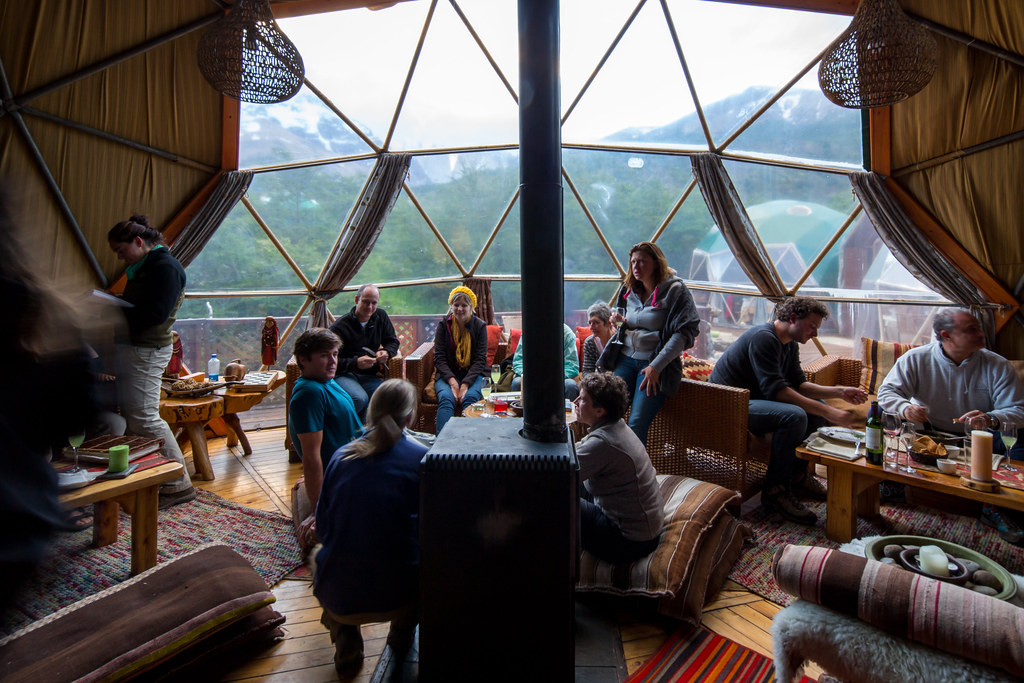 No more "turn on the light" during the day. Optimizing natural light in your hotel changes everything
No more "turn on the light" during the day. Optimizing natural light in your hotel changes everythingEducation is the Key
“The great aim of education is not knowledge but action” said Herbet Spencer. We believe social and environmental responsibility can also be taught through action. What better place than Torres del Paine to educate? Puerto Natales – the entrance door to the national park, with about 20,000 inhabitants – overflows with people eager to learn about sustainable tourism. EcoCamp works with a local college (Liceo Politecnico Cruz Martinez) to provide an intern program, allowing students to work in various areas of the geodesic hotel (maintenance, housekeeping, dining room, etc.). For example, students can discover the process of recycling and maintaining the composting toilets. (These devices are a great tool to reduce water consumption, and can generate quality compost for soil regeneration.) Students who take part in the program all agree they better appreciate the importance of the natural heritage and learn concrete ways to reduce their natural footprint.
We support students’ events, such the first regional scientific and academic symposium in the Torres del Paine region (09/10/2014), organized by the NGO Ama Torres del Paine & Proyecto Explora (Región de Magallanes) which involved students of the region in the area’s sustainability. Apart from their unstoppable motivation, youth also forms the future of the park…which we should not forget!
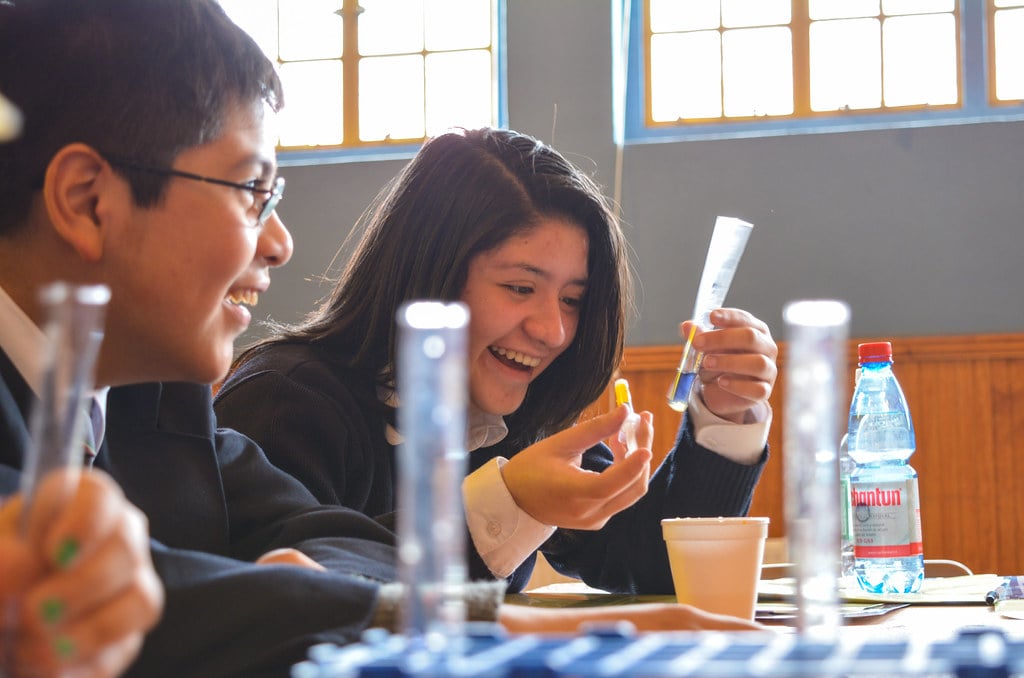 Understanding the difference between industrial and organic products during a students' symposum supported by EcoCamp (09/10/2014)
Understanding the difference between industrial and organic products during a students' symposum supported by EcoCamp (09/10/2014)Partnering Helps Making a Better Place
United we stand, and many people and organizations understood the importance of having a solid network for a greener Torres del Paine. In 2014, Torres del Paine Legacy Fund, a small organization powered by Sustainable Tourism International, started working in the park to implement traveler-supported sustainability initiatives. Its aim? To restore the national park’s health with projects related to trail restoration, reforestation or recycling. If you hike the iconic W Trek, you may notice the considerable erosion at some places. We all dream about a clean and well-maintained trail to French Valley and the base of the towers’ lookout. But both AMA and CONAF – the both organizations that manage the national park’s conservation – need support and organizations such as Torres del Paine Legacy Fund are a great way to gather the resources we all need. Apart from the donations, EcoCamp may send volunteers to work on the trails and help improve the infrastructure in a next future. What if travelers became the new sustainability makers?
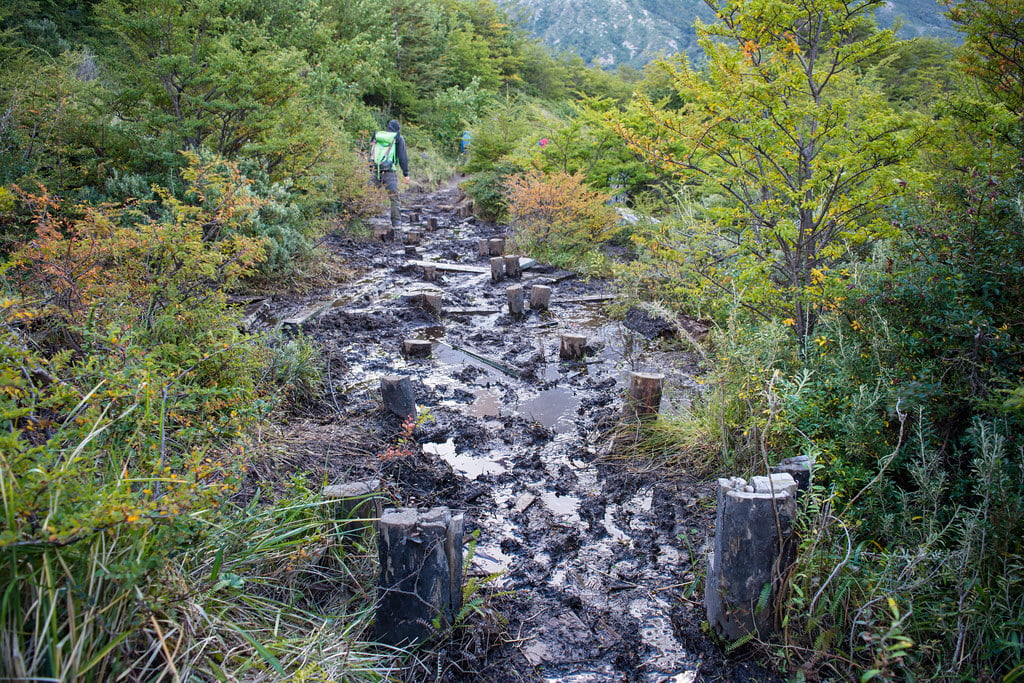 Trail erosion and degradation of tourism infrastructure are some of the biggest issues in Torres del Paine National Park
Trail erosion and degradation of tourism infrastructure are some of the biggest issues in Torres del Paine National ParkEcoCamp partners with The Long Run, a flagship initiative of the Zeitz Foundation which significantly influences the management of natural areas for conservation. This partnership is a true commitment to achieving sustainability through the 4Cs: conservation, community, culture and commerce. A good way for knowledge exchange and to get good tips from an international organization! The hotel is part of several other organizations such as The International Ecotourism Society (TIES), WTO Global Codes of Ethics and Carbon Fund Neutral, allowing it to get closer to sustainable tourism actors and to help reducing global warming while offsetting its carbon footprint. What more efficient union than a worldwide network?
EcoCamp is certificated ISO 14001 (Environmental Management System) and ISO 9001 (Quality Management System) for its example of good practice of sustainable tourism in the wilderness, and has been awarded the Sello S (sustainability certification) for its commitment of sustainability in Chile. In 2012, the hotel was awarded “Best mountain environment” in the World Responsible Tourism Awards. Partnering is not only positive for the environment: it is rewarding!
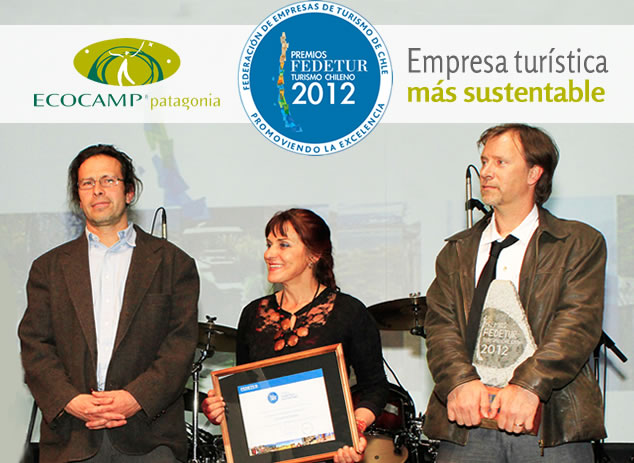 EcoCamp has notably been awarded "most sustainable tourism business" in Chile by FEDETUR in 2012 (Picture: Javier Lopez, Nani Astorga and Yerko Ivelic, EcoCamp founders, with the reward)
EcoCamp has notably been awarded "most sustainable tourism business" in Chile by FEDETUR in 2012 (Picture: Javier Lopez, Nani Astorga and Yerko Ivelic, EcoCamp founders, with the reward)Involving People is Good for the Earth
In the remote lands of Patagonia, many people work hard to allow us to enjoy the freshness of local products. If you still doubt the advantages of consuming locally produced products, you can read our article on the topic! Anyway, we are sure you will love the taste of the delicious vegetables grown by local farmers once at EcoCamp. You might even prefer the spices we grow in our greenhouse to make it even more local!
Much more than creating employment, involving people educates. It is good for our planet. At EcoCamp, we decided not to simply put in place an environmental education, but go one step further: directly involve people in the national park’s sustainability. We created a “Green Team”, a group of volunteers among the staff who regularly gather to exchange ideas and concretely take action. They reviewed process the regular “cleaning” of the hotel, made sure the recycling process was well-organized and walked along the hiking trails to clear up the waste and raise awareness about garbage. Apart from the Green Team, we think brainstormings are a cool way to make people think productively while having fun. At EcoCamp, we decided to gather the staff every Wednesday afternoon for fun and participative activities. The yoga dome could not be a better setting for people to express themselves and find solutions to reduce the ecological footprint of the place/community. To put it briefly: take care of your people, they are the change!
We love Torres del Paine National Park. We love Patagonia. And if we truly want to take care of it while making tourism, we have to love being responsible. If you ever come to that magic region of South America, be the change you want to see in this world…we need you to improve our sustainability, again and again, without a break!
Update 2020 : if you're traveling during the COVID 19 pandemic, here's some useful information for a responsible tourism.
Do you want more information? Visit cascada.travel and learn about our programs

